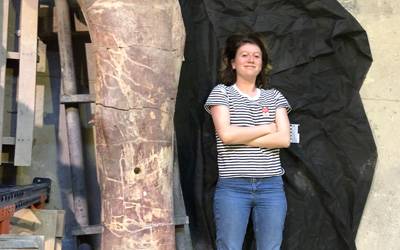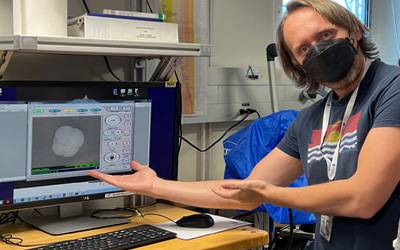The Department at a glance
Modern Earth Sciences is as dynamic and diverse as the planet itself. We study everything from the origin of the Earth to the history of the life it sustains. We are an integrative, interdisciplinary, modern science, applying state-of-the-art maths, physics, chemistry and biology in order to better understand the Earth and other bodies in the solar system.
Kathleen Lonsdale reopening with Sir David Attenborough
We are very proud to be in the building named after Dame Kathleen Lonsdale – the colocation is a major transformation for us with new teaching, laboratory and social places provisions.
Research Spotlight: Dr Ana Ferreira
I study deep Earth structure and earthquake source processes to obtain an integrated understanding of the processes controlling the dynamic behaviour of our planet from the surface down to the lowermost mantle.
Student Spotlight: Cecily Nicholl
Notosuchians were an incredibly diverse group of crocodylomorphs during the Cretaceous”
World's oldest fossil discovered here
Research led by Dominic Papineau & Matt Dodd provide direct evidence for one of the oldest life forms on Earth - fossilized remains of microorganisms that are at least 3,770 million years old. These discoveries demonstrate life developed on Earth at a time when Mars and Earth had liquid water at their surfaces, posing exciting questions for extra-terrestrial life.
Research Spotlight: Dr Emma Liu
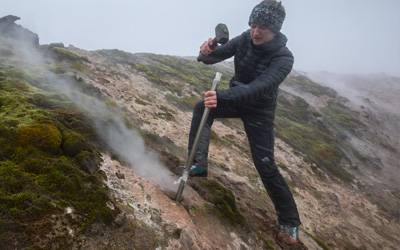
Meet the Staff: Dr Katie McFall
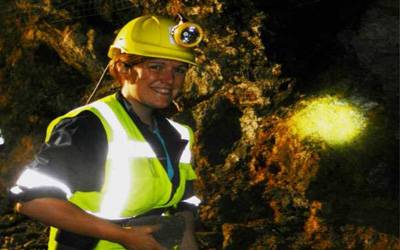
I am a field geologist, petrologist and geochemist who specialises in economic geology and helping find sustainable supplies of the resources society will need for a zero carbon future. I am fascinated by what happens when very hot fluids, such as salty water and carbon dioxide, interact with molten rock and metals deep in the earth.
UCL Women in Earth Science: WiES
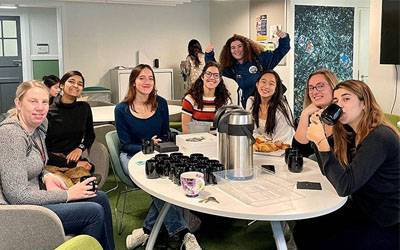
“We aim to support the progression of women and gender minorities in Earth science, highlight their achievements and create opportunities to network and engage in cutting edge research across the diverse fields of Earth sciences
Geobus outreach programme
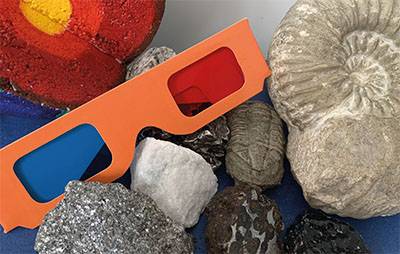
GeoBus is a free outreach programme run out of the Earth Science department of UCL. We aim to bring engaging, hands-on sessions to school students in and around London. We want to inspire the next generation of Earth scientists by instilling in them a spark of curiosity and wonder for the world around them.
Research Spotlight: Prof Pieter Vermeesch
A brief introduction to U-Pb, (U-Th)/He and fission track geochronology and thermochronology - Pieter Vermeesch, talks about the research at UCL's London Geochronology Centre.
Department History: The Kathleen Londsdale building
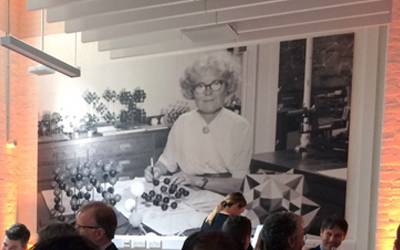
If we look right back to one of the very founding fathers of College itself, George B.Greenough, whose name our Student Society proudly bears to this day, we can trace our roots as far back as the 19th century.
Student Experience: Thanks for all the geology!
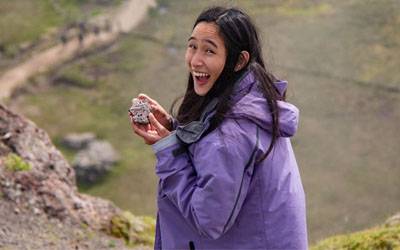
“Through my time at UCL, I’ve developed a passion for sustainability, climate change & a fascination for Arctic sea ice dynamics, solar geo-engineering & of course, geology!. ”
Fieldtrip Highlight: Ries impact crater
Asteroid and comet collisions have shaped the surface of the Earth – this fieldtrip gives students to opportunity to study impact geology of such event that occured ~14.5 million years ago.
Outreach Event: Discover Earth Sciences
Alumni Profiles: Agathe Detanger
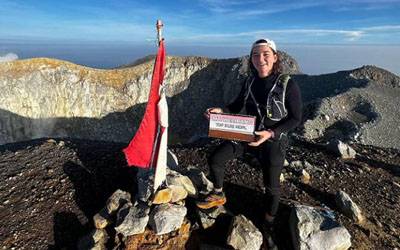
“My time at UCL and the diversity of the modules available in the Earth Sciences department, made it possible to tailor the course to my interests in hydrology, geology and groundwater management; what a luxury!
Our latest activities & research spotlights.
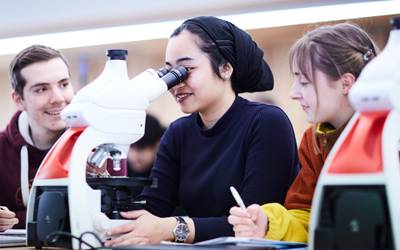
Fieldwork highlights: 3D Outcrop Models
Soapbox Science - Contributing to woman in science.
YouTube Widget Placeholderhttps://www.youtube.com/watch?v=SX_BAN9ZgFU&list=PL_EtZczxgqp8HLEhu1YfKZ...
What two iron bolts, apple and polystyrene sphere have in common? They are all part of the public outreach presentation on studies of the interior of the smallest planet in our solar system, Mercury.
Fieldtrip Higlight: Pyrenees Fieldtrip
YouTube Widget Placeholderhttps://www.youtube.com/watch?v=XUOgFueGrNw&list=PL_EtZczxgqp8HLEhu1YfKZ...
The field provides a natural laboratory where students can learn. Many students find fieldwork one of the most enjoyable parts of their undergraduate career. Fieldwork is an essential component of study across all of our degree programmes in Earth Sciences.
Student Spotlight: Adam Cotterill
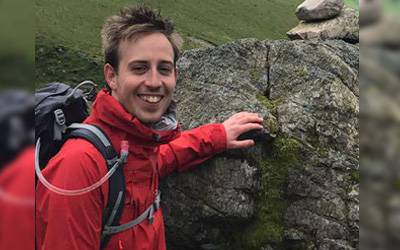
““Combining drone-based strategies with ground & satellite techniques to improve monitoring at inaccessible volcanoes”
Outreach: One Minute Geology
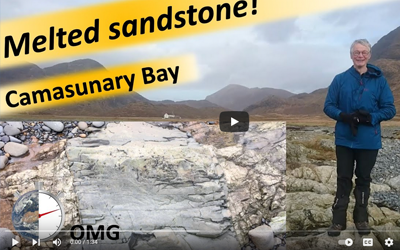
“A resource for teachers, field leaders & interested individuals was founded by Prof David Dobson in the autumn of 2021. The One Minute Geology YouTube channel provides concise videos about the geology you might see when out walking or climbing in the UK.
Student Spotlight: Marcin Latas
““Microfossils might be tiny but it is often the smallest things that make a big difference in science.”
 Close
Close


